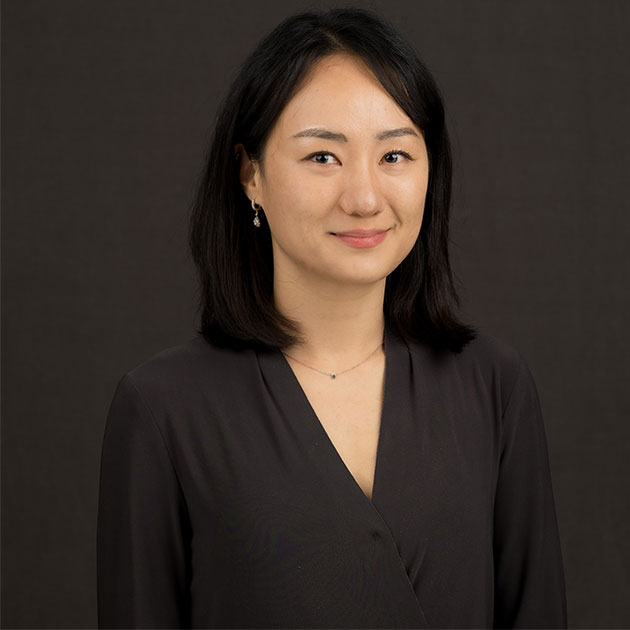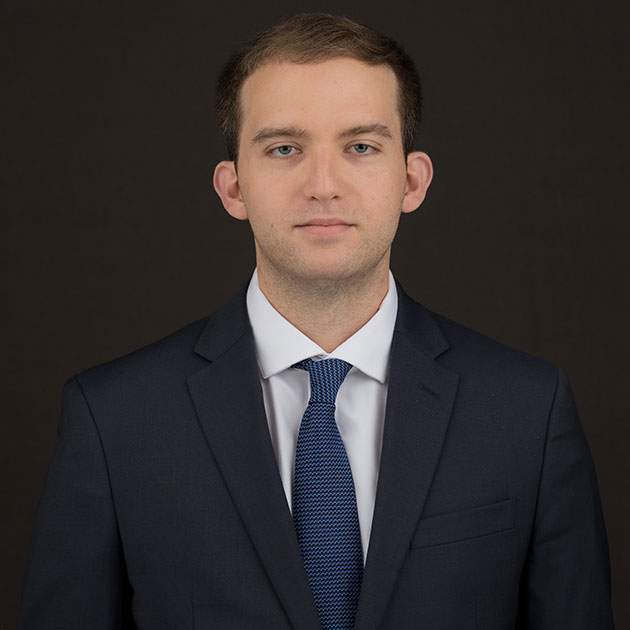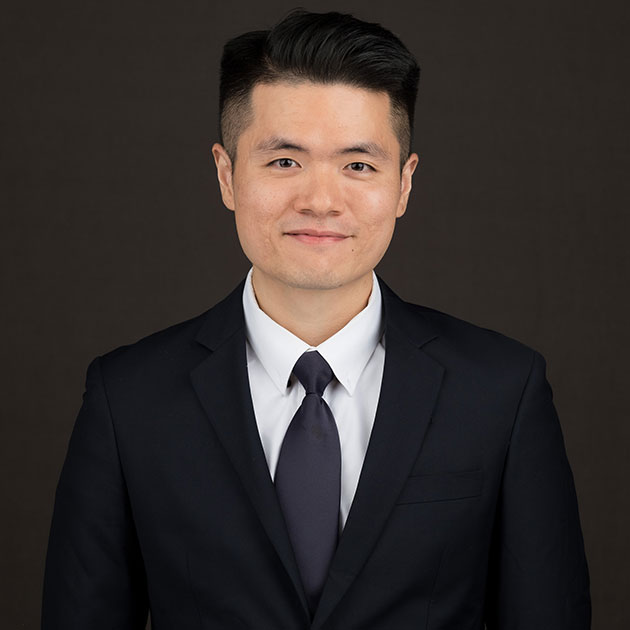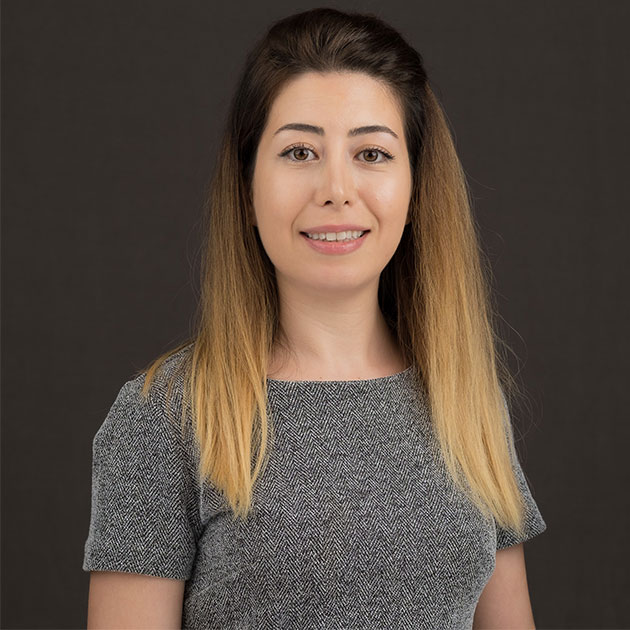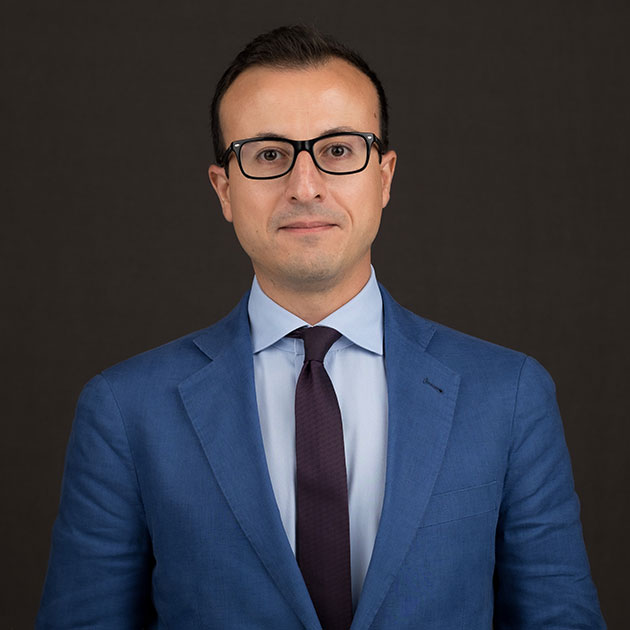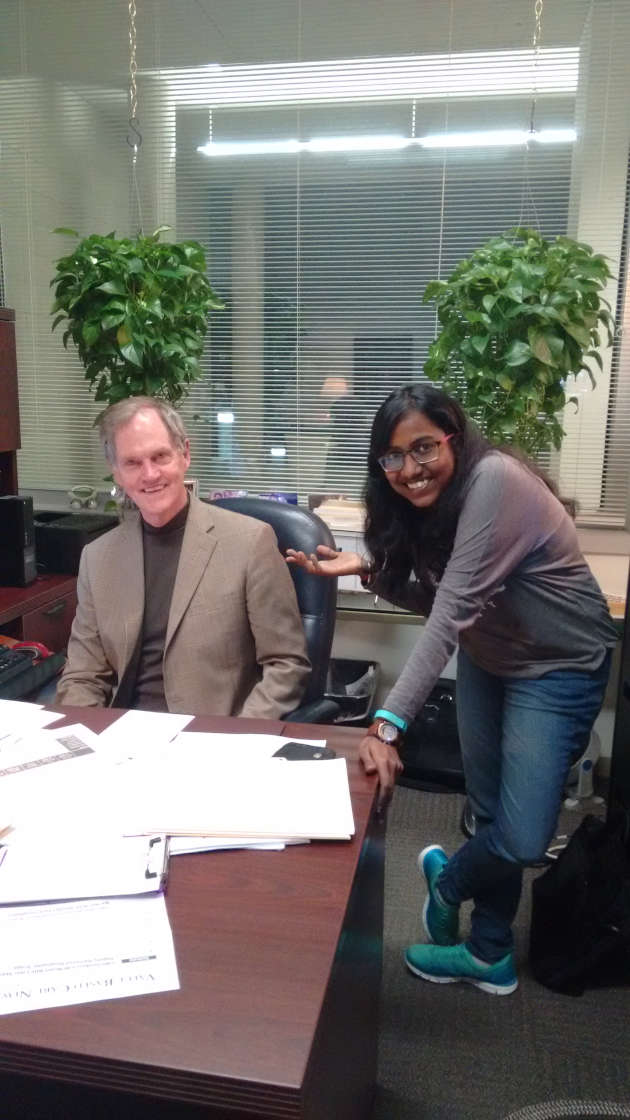
Dr. John F. McCracken, executive director of Jindal School’s Alliance for Medical Management Education programs, has a very interesting personality, a man of many interests and many talents. What exactly are they? Don’t ask me; read on to find out the answer for yourself in this two-part interview!
Q: I have seen you always busy…reading, writing, you always seem to keep yourself engaged, constantly learning. Why is learning so important to you and what degrees have you earned so far?
A: I enjoy living in a world of ideas. That defines fun for me. I was trained in finance but then got in to healthcare by doing workout and turnaround management of distressed healthcare and physician groups. That sparked an interest for me in healthcare, and as you all know, healthcare in this country is in great turmoil. It is undergoing great changes, and there is a lot of room to learn and to stay up on that. I stay up principally on healthcare policy – “How do you fix this mess?” – That is my real interest. With regard to all the reading and learning, it is just the same as with any other faculty, you have got to be disciplined and stay up with the trends, or you are going to be left behind!
As for my degrees, I have a Bachelor of Arts in economics from SMU, was lucky enough to go to the London School of Economics (MS in economics) and then did a PhD in Finance from Wharton.
Q: In your 20s, did you think that you would be creating a healthcare management program someday? Give us a glimpse of 20-something John. What were his dreams and aspirations?
A: No, I did not even think about it. I wanted to get to Wall Street. I started my teaching career at Columbia University in New York. By chance and misadventure, I started my teaching career there, and they paid me a princely sum of $13,500 per year. If there were food stamps back then, I would have qualified. I was teaching finance, money and banking, and it did not take me long to see that if I could go to Wall Street, I could significantly increase my salary!
Q: So did you make it to Wall Street?
A: Oh, yes I did! I worked on the Wall Street, for about five years.
Q: How was the experience?
A: Ah…It was an interesting experience. The culture of Wall Street is very focused on financial results. This is what you get if you succeed, and this is what happens if you don’t. I didn’t particularly like that, culture. I did well from an income point of view, but I did not particularly enjoy the culture. I eventually realized that it was not where I wanted to spend the rest of my life. I did not know where I wanted to spend my life, but I knew it was not going to be on Wall Street
Q: Have you watched The Wolf of Wall Street? How true is the depiction of an Investment banker’s life in the movie?
A: Well, let’s just say that there is a ring of truth there.
Q: Describe the 20-something John.
A: Like all young people, I thought I was going to live forever. I will confess that I did not do much career planning. A lot of people are eager to climb the ladder of success, but many times they lean that ladder against the wrong wall. They become very successful at doing something that does not give them a lot of satisfaction. They get to their late 40s or early 50s, and they realize that they are in the wrong place but are reluctant to climb down the ladder and start again. I always counsel people, “Be willing to start over.” If not, you can get locked into doing something that you really don’t enjoy and will be forced to waste the rest of your professional life. I had a lot of different experiences in my professional life, and it took me until I actually came to UTD, which was in my mid-50s, before I really recognized that this is where I wanted to be. That is when I was ready to start over again.
Q: It is so nice to hear that you found your calling in your mid-50s and that you were all set to start over again! Can you give us a glimpse into how that happened?
A: In the 1980s, I became a member of the board of directors of a local hospital, and one thing led to another. That hospital was acquired by another hospital, and they acquired some physician group practices. It wasn’t long before the docs spent all the money. There was a mess, and I ended up doing a turnaround of these distressed physician practices, and that is how I got interested in healthcare. I did about 12 years’ worth of workout management and finally got tired of it. Turnaround management involves a lot of fighting and dispute resolution, and I finally decided that I wanted to come back to education, as this is where I had started my career many years ago.
I came to UTD about the same time that [Dean] Hasan [Pirkul] came. I came in with this idea for a physician MBA program —they did not exist back then — and I will forever be grateful to Hasan for giving me that chance to make it happen. So that’s what I did.
My first office was over at Jonsson Hall, and it was nothing short of a hazardous waste closet. It was so small that there was no electric plug in it. I could not get a desk in there, so I actually had to run an electric cord around the corner from an adjoining room in order to get a power supply in there. So that’s the story of how I started.
Q: What is your advice for 20-something people out there in JSOM?
A: When it comes to your professional career, don’t go necessarily for the title or the money, take a hard look at the organizational culture that you are going to find yourself in and go with an organization where you like the people that you work most closely with. Fortunately, I have been able to work for two really good managers in my life, and I learned a lot from both of them. I have of course worked for a few bad managers too, but if you are fortunate, you will work for a real good manager at some point in your career. A good manager can teach you a lot about leadership and management.
I would counsel a young person starting out to focus on what they can learn in a job as opposed to what the job pays and what the title is. People start out eager, spend about five to six years and then realize they are not happy.
If you are lucky, you will have more than one career — you should have several in your life. So do several different things, and hopefully each time you will get closer to what you want. What I enjoy most about UTD is its organizational culture. To fit in your workplace culture is very important. I always tell people, particularly the doctors in my class, that there is no luggage rack on a hearse. Do something you really enjoy and success will come.
Q: What is your favorite thing about your program?
A: I really like the physician MS/MBA program that I run. I enjoy most being able to develop a trust relationship with the docs. They tend to be somewhat insular among themselves. They are very well educated but somewhat narrow in in their exposure to subjects outside of medicine. They come here because they want to be leaders. These are doctors who have risen to a leadership role based on their interest and natural talent, but with no formal training in leadership and management. They are very eager to learn, and once you develop a truest relationship with them, it becomes an enjoyable journey. I still mentor docs that graduated 10 years ago. I still stay in touch with them, and and that gives me great pleasure.
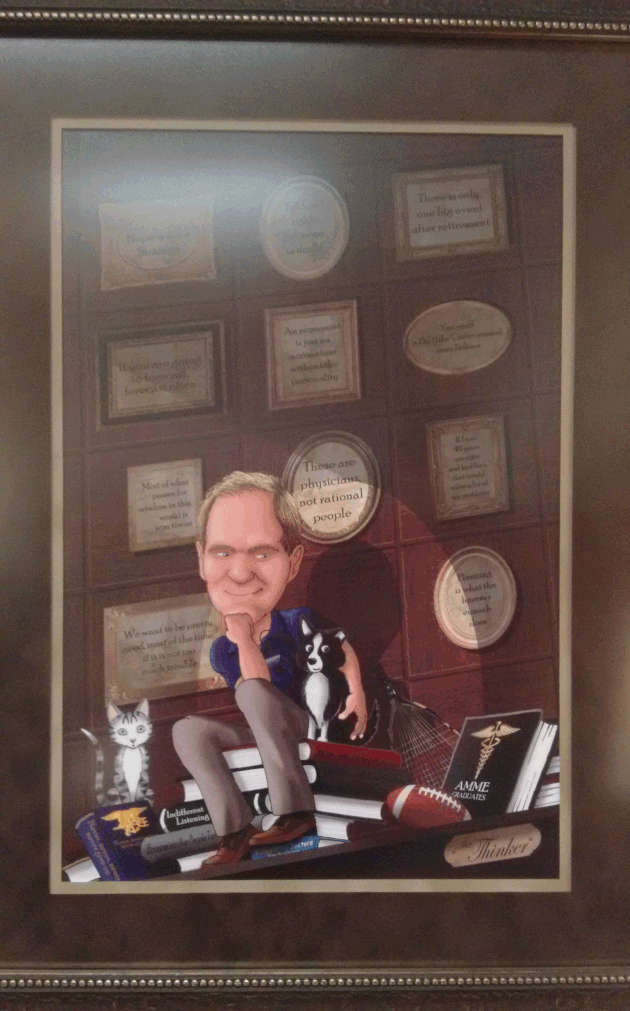
Q: Tell us about the origins of McCrackenisms.
A: I use various little phrases and comments in the class, and that kind of amuses the doctors, so they write them down and present them to me from time to time. Some of the things on this caricature (picture above), the little plaques are McCrackenisms.
Q: Can we have one?
A: These are physicians, not rational people!
That brings us to the end of this first part interview. Stay tuned for there is more to follow next week!

